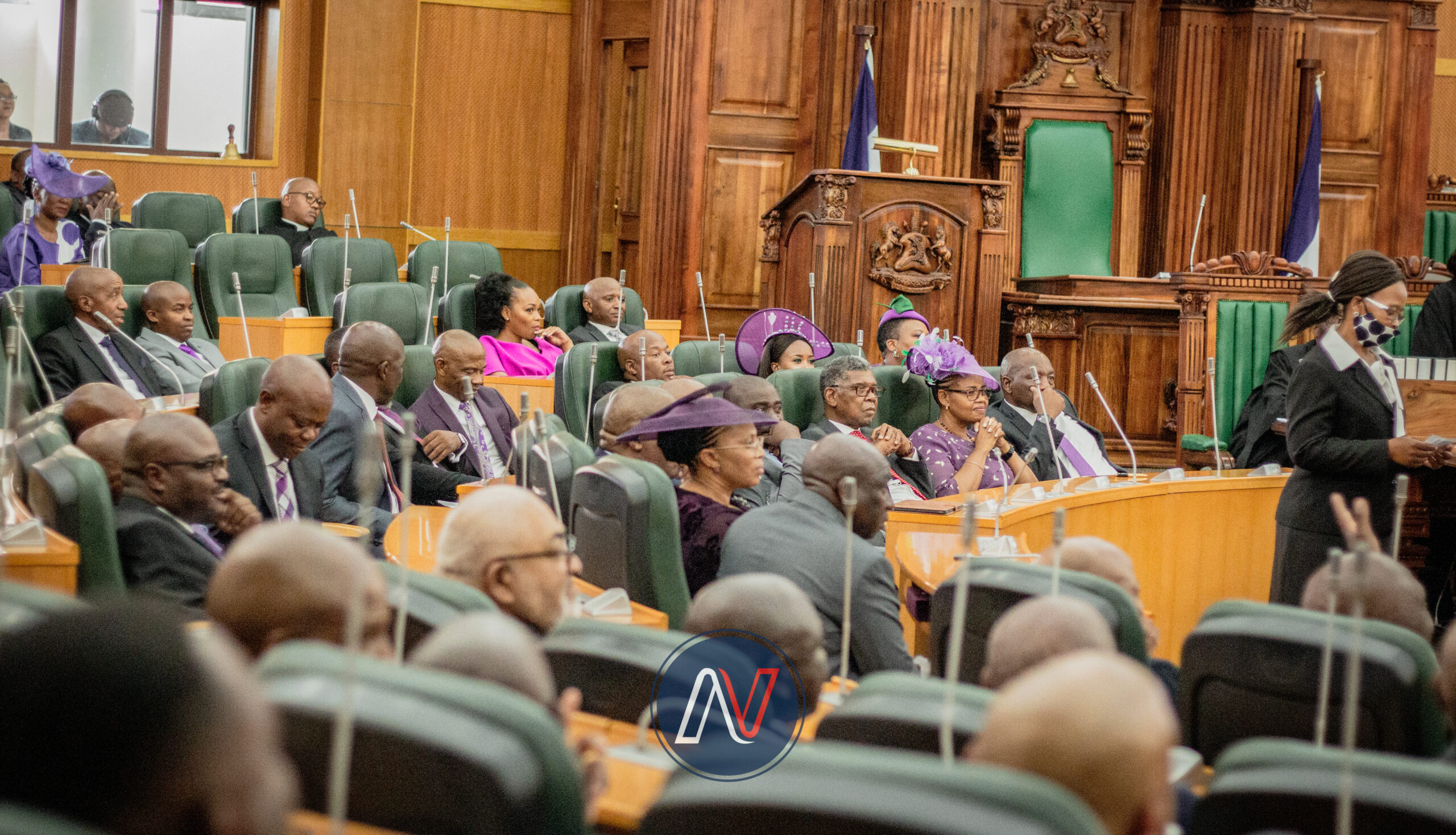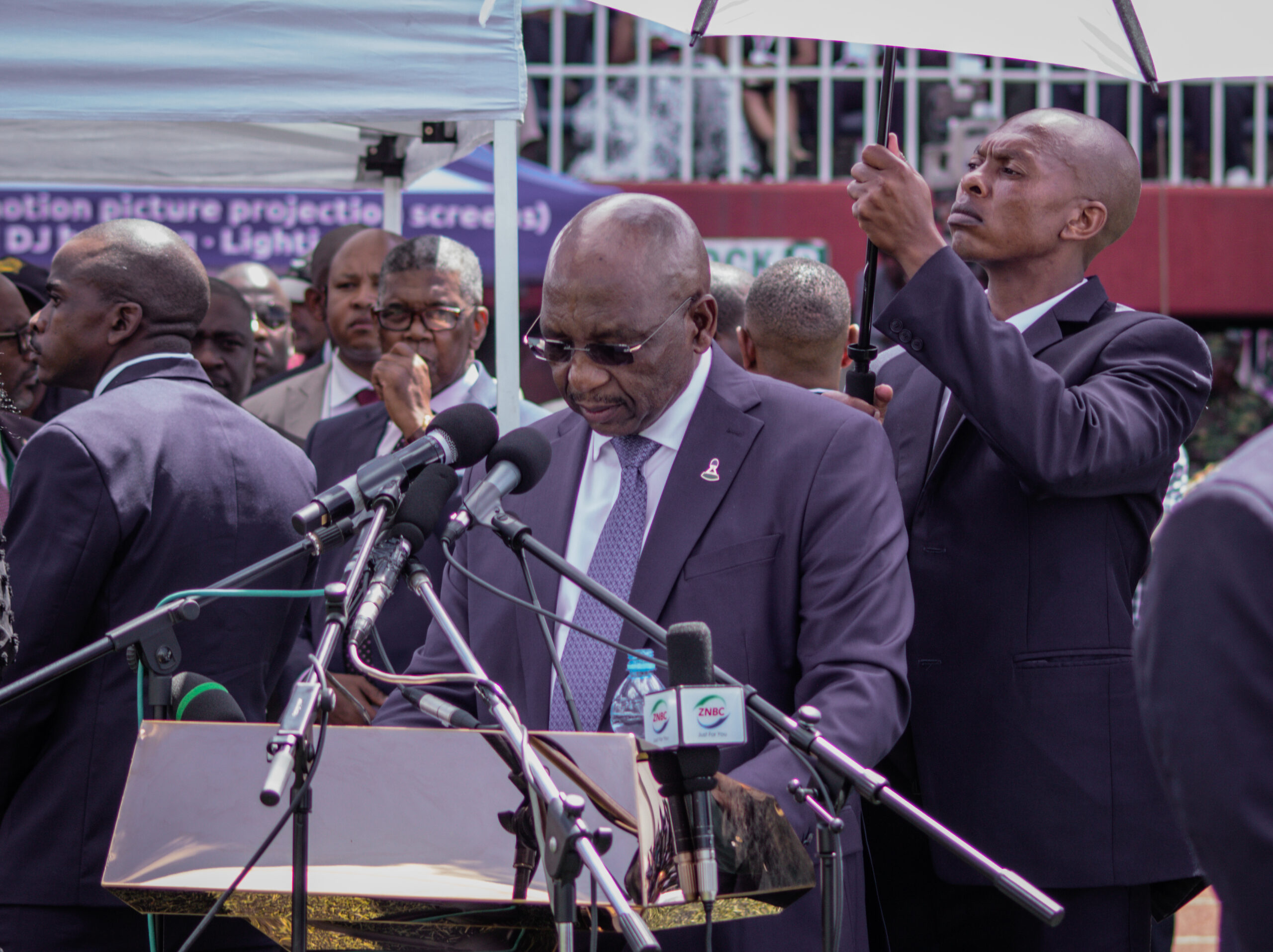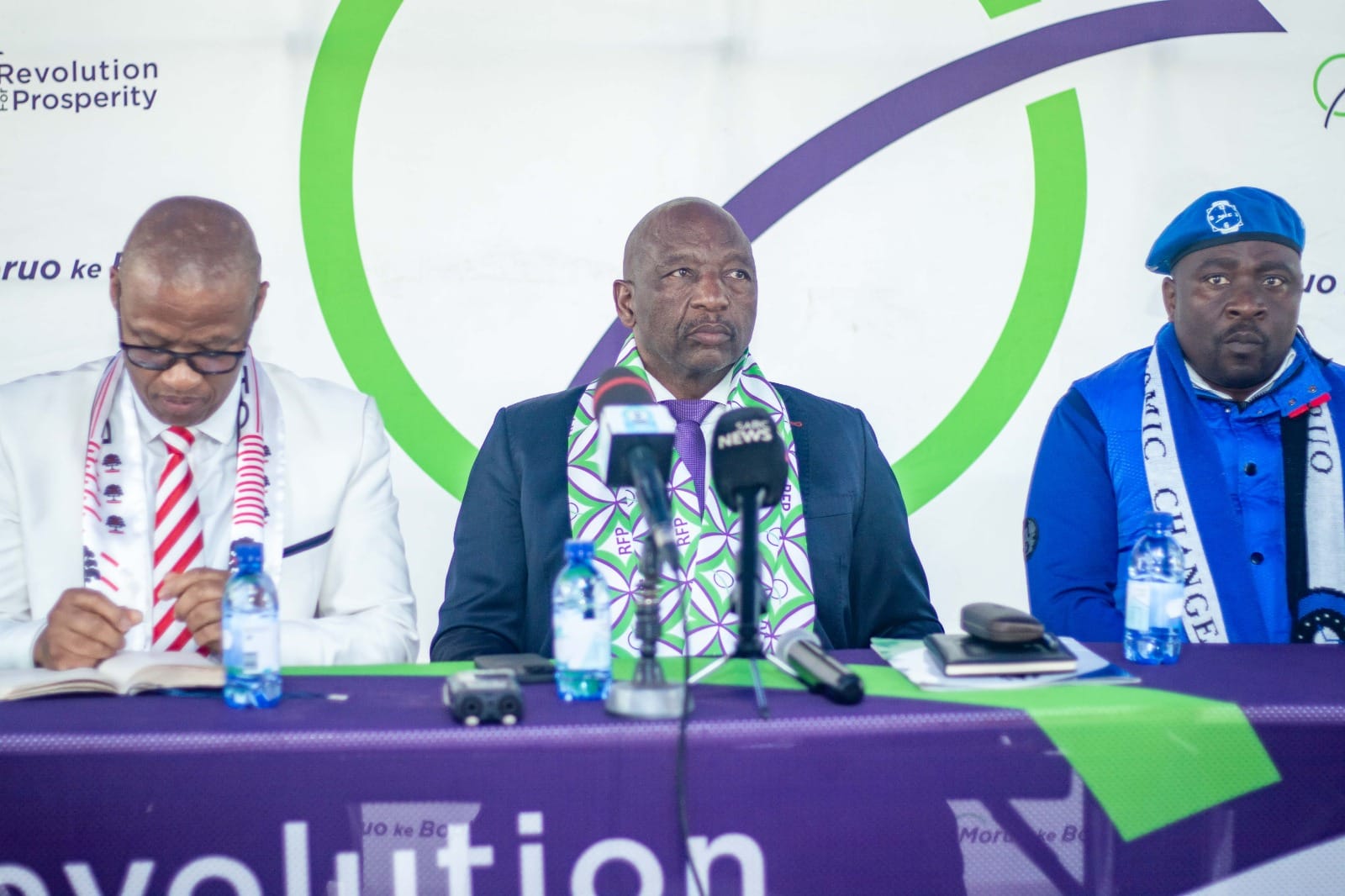Masetleka Matjekesa, Lineo Mahlomola & Neheng Mofoka
Prime Minister has assured the parliament of the government’s commitment to the national reform process and vowed that his administration will work with all stakeholders to ensure the reforms’ full implementation.
Matekane met with members of the National Assembly last week.
“Lesotho has had a history of instability, tensions, and hatred for a long time and we are as a result, the laughing stock of other countries. We have tarnished our image,†he said to MPs.
“Today God has given us a chance to rescue this country. I have confidence that if we can hold each other’s hands and work together, we will bring Basotho lasting peace,†he added.
He said Lesotho is a nation founded on peace and unity.
“Our great founder King Moshoeshoe I built Lesotho on a foundation of consensus, peace, and diplomacy. Today’s platform affords us an opportunity to look back and exemplify brotherly and sisterly love and respect as we forge meaningful cooperation among ourselves for the benefit of Basotho,†he said.
Since gaining independence from Britain in 1966, political instability and slow economic development have plagued Lesotho.
The country’s recent political history has been littered with fractious governing coalitions and the proliferation of political parties.
Addressing the question of political and security instability in Lesotho has been on the agenda of the government for the past eight years or so.
This has been so after a recognition that Lesotho was by all indicators regressing as a result of never-ending instability, while its counterparts moved on.
The reforms – meant to usher in a new era of stability in Lesotho – are the result of years of discussions among political parties, civil society, and other role players, mediated by the Southern African Development Community (SADC).
In May last year, all the major parties in parliament signed a pledge to pass the 10th Amendment to the Constitution Bill 2022, commonly known as the Omnibus Bill, by the end of June 2022.
This was to ensure the bill could go through before the term of parliament ended in July.
The Omnibus Bill sought to amend key provisions regarding political parties, floor-crossing in Parliament, the appointment of senior officials, and the role of the prime minister.
However, the bill was not passed when the term of parliament ended and was dissolved on July 14, last year.
Following pressure from several quarters, the council of state advised then-prime minister Dr Moeketsi Majoro to declare a state of emergency – one of two conditions under which a dissolved parliament can be recalled.
When he declared a state of emergency, Majoro said failure to pass the bill would mean the continuation of unchecked politicization of the public service, including the security agencies, loopholes in the constitution, formation of coalition governments, unregulated floor crossing in parliament and inadequate regulation of political parties.
He said these issues had been identified as factors undermining political stability, justice, and peace in the country. He further indicated that the current political climate posed a substantial threat, risk, and danger to the country’s stability and prosperity.
“Unless the stated undesirable condition is addressed, it is likely to be beyond control and escalate thus causing more threat to the peace, safety, and stability of the Basotho nation,†Majoro said.
After the state of emergency was declared, His Majesty King Letsie III recalled parliament to pass the omnibus bill and the National Assembly Electoral Act Amendment Bill 2022.
The two bills and many other bills were consequently passed but on September 12, the High Court (sitting as the Constitutional Court) concluded that the state of emergency, as well as the reconvening of parliament, were null and void.
All laws passed by the recalled parliament were also declared null and void.
Chief Justice Sakoane Sakoane, as well as two judges of the high court, Justice TÅ¡eliso Monapathi and Justice Mafelile Ralebese, presided over the case.
Majoro and the attorney general, advocate Rapelang Motsieloa, appealed the high court ruling but the court of appeal on September 19 last year, dismissed their appeal with costs.
Political parties that were contesting the national assembly elections held on October 7 vowed to ensure the reform process would go ahead if they came to power.
During his inauguration in October last year, Matekane said the importance of expediting ongoing national reforms could not be over-emphasised.
“I thank you, your Excellency President Ramaphosa (Cyril) and your right-hand man – the leader of the mediation team Justice Dikgang Moseneke for your commendable efforts in leading and guiding our national dialogue and reform agenda,†he said.
“I promise to expedite the successful completion of the national agenda a journey towards the Lesotho we want,†he added.
Earlier this year, Matekane went to South Africa on an official visit for a bilateral discussion on the progress made in Lesotho since his ascension to office.
Ramaphosa then said he believed that, as Matekane’s undertaking, the new government would expedite its efforts and complete all outstanding matters to finalise the reform process and pass the outstanding Constitutional Amendment Bill.
Matekane told MPs last week that it has been about five months since the new government was installed and reiterated the reforms remained the government’s priority.
Even though Matekane met MPs last week, the statement he made during the meeting was only shared with the media by his press attaché, Thapelo Mabote, yesterday.
Matekane was accompanied to parliament by the National Reforms Transitional Office (NRTO)’s Tšiu Khatibe. NRTO was established last year following the disbandment of the National Reforms Authority (NRA) – an institution established by an act of parliament in 2019 to manage, coordinate, and lead the reform process.
NRA’s term expired at the end of April last year and the government decided not to renew its mandate.
“A reform is not limited to processes, procedures, pieces of legislation, and a list of policies that have been reformed or new ones formulated. It also includes, most importantly, changing the attitudes of those on whom these instruments are intended to be implemented,†Khatibe said.
“The moment to define our course has arrived. We need to make hard choices, engage in uncomfortable conversations, and arrive at difficult decisions in order to prepare Lesotho for the future,†he added.
He also told MPs that the reforms journey had just begun to take shape and indicated that the country should not go to the next general election under the same constitutional and legal framework.
He said “The big question is: Are we prepared to take difficult decisions for the sake of Lesotho? Reforms need a strong leadership that works as a collective and is focused on doing what is best for the country and nothing else.â€
MISA Lesotho says progress in implementing reforms remains very slow
On Wednesday this week during an event to commemorate World Press Freedom Day, the chairperson of the Lesotho Chapter of the Media Institute of Southern Africa (MISA Lesotho), Kananelo Boloetse, said some people seemed to have forgotten about the reforms and stressed that MISA Lesotho was not one of them.
Boloetse stated that ensuring that the comprehensive national reforms which reflect the will of the people are implemented has always been and remains a top priority of MISA Lesotho.
“Prime minister Matekane and his coalition partners committed to prioritising the reforms, however, over six months since the new government was installed, work in earnest to implement the reforms is yet to begin,†he said.
He added: “While we understand that prime minister Matekane’s government faces a shopping list of problems, we call on it to prioritise reforms as it promised and take meaningful steps to resuscitate the reform process.â€
Boloetse called on the government to devote resources and political will to make sure that the reforms “happen as soon as possibleâ€.
He said the government should work in good heart with all the partners feeling productively engaged and involved, and taken seriously.
“We implore all the media houses to consistently keep reminding the political leaders that Basotho cannot afford to wait any longer for the reforms – the only surest way at the moment to ensure that press freedom and access to information are expressly protected by the constitution,†he said.

Your Trusted Source for News and Insights in Lesotho!
At Newsday Media, we are passionate about delivering accurate, timely, and engaging news and multimedia content to our diverse audience. Founded with the vision of revolutionizing the media landscape in Lesotho, we have grown into a leading hybrid media company that blends traditional journalism with innovative digital platforms.











